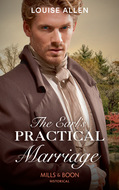Kitap dosya olarak indirilemez ancak uygulamamız üzerinden veya online olarak web sitemizden okunabilir.
Kitabı oku: «The Lawman's Bride»
Praise for Cheryl St John
THE LAWMAN’S BRIDE
‘As always, St John portrays the West realistically and romantically.’
—RT Book Reviews
HIS SECONDHAND WIFE
‘A beautifully crafted and involving story about the transforming power of love.’
—RT Book Reviews
PRAIRIE WIFE
‘This is a very special book, courageously executed by the author and her publisher.
St John explores the catastrophic loss of a toddler in intimate, painfully beautiful detail. Her considerable skill brings the common theme of the romance novel—love conquers all—to the level of genuine catharsis.’
—RT Book Reviews
SWEET ANNIE
‘A tale brimming with love…Ms St John delivers another wonderful Western historical romance…’
—Romance Reviews Today
THE DOCTOR’S WIFE
‘Cheryl St John gives testimony to the blessings of family and to the healing powers of love.’
—RT Book Reviews
Sophie wanted to change.
But how could she change now? How could she tell him the truth regarding anything without condemning herself to prison? She couldn’t. Not yet.
An uncharacteristic sense of hopelessness swept over her. She blinked back the sting of tears.
But he’d seen. “Sophie? What is it? What makes you so sad?”
She shook her head.
Clay remained seated, but took her hand and raised it to his lips. His warm breath and a soft kiss sent a tingle up her arm, and her breasts tightened unexpectedly.
A good man. An honest, straightforward man. He was as different from her as the moon was from the sun. And thinking of the two of them together was hopeless.
But she was weaker than she’d ever imagined.
Kiss me, she cried silently. Kiss me and let me feel the beauty just for this one night.
The Lawman’s Bride
Cheryl St John

A peacemaker, a romantic, an idealist and a discouraged perfectionist are the words that CHERYL ST JOHN uses to describe herself. The award-winning author of both historical and contemporary novels says she’s been told that she is painfully honest.
Cheryl admits to being an avid collector, displaying everything from dolls to Depression glass, as well as white ironstone, teapots, cups and saucers, old photographs and—most especially—books. When not doing a home improvement project, she and her husband love to browse antiques shops. In her spare time she’s an amateur photographer and a pretty good baker.
She says that knowing her stories bring hope and pleasure to readers is one of the best parts of being a writer. The other wonderful part is being able to set her own schedule and have time to work around her growing family.
Cheryl loves to hear from readers! E-mail her at: SaintJohn@aol.com
Recent novels by the same author:
SWEET ANNIE
JOE’S WIFE
THE DOCTOR’S WIFE
SAINT OR SINNER
THE MISTAKEN WIDOW
THE TENDERFOOT BRIDE
ALMOST A BRIDE (in Wed Under Western Skies)
PRAIRIE WIFE
CHRISTMAS DAY FAMILY (in A Western Winter Wonderland)
HIS SECONDHAND WIFE
A BABY BLUE CHRISTMAS (in The Magic of Christmas)
MILLS & BOON
Before you start reading, why not sign up?
Thank you for downloading this Mills & Boon book. If you want to hear about exclusive discounts, special offers and competitions, sign up to our email newsletter today!
Or simply visit
Mills & Boon emails are completely free to receive and you can unsubscribe at any time via the link in any email we send you.
This book is dedicated to my readers.
Your letters and emails brighten my days and encourage me. Your pictures are posted around my workspace to remind me why I do what I do. When you tell me you’ve read every one of my books, I’m honoured. When you say they’re on your keeper shelves, I’m delighted. When you share how a story touched you or helped you heal, I’m humbled. Whether we’ve met in person, blogged together, or live on different continents and will never exchange a word, consider yourself deeply appreciated.
You are special to me.
Prologue
Morgantown, West Virginia, 1878
Dense clouds parted to reveal a slice of silver moon in the narrow gap of sky above the dark alley where the fourteen-year-old girl crouched beside a stack of crates. She wasn’t afraid. No, there were plenty of things more terrifying than night. Darkness was a friend tonight, cloaking her in its haven of invisibility.
Adjusting her grip on the handle of her traveling bag, she glanced around and listened intently, making certain no one followed.
In the distance a train whistle blew, and her heart swelled at the promising sound. If she could make it to the station, she’d buy a ticket and be gone. It didn’t matter where the train was heading. Freedom was an elusive place she could only imagine.
A pattering erupted as fat drops of rain struck the rooftops of the buildings on either side of the alley, pinging against every piece of metal and wood. Enough sound to muffle her steps, she thought with a surge of hope.
She straightened and took a step. A yelp startled her and she brought her free hand to her mouth to stifle a cry. The dog she’d surprised sniffed her feet then moved on. She took a deep breath, relaxed her muscles, and her racing heart calmed.
Determined, she grasped her bag and strode to the front corner of the building. Across the street in the yellow circle from a street lamp, she made out the word LUNCHEON painted in gold letters on an expanse of window glass and knew exactly how many buildings she needed to pass to move into the opposite alley. From there she could make her way to the edge of town. She stepped forward.
“Awfully late for a stroll, isn’t it?”
Her heart dropped to her toes at the familiar voice. The black-shadowed figure of a man loomed out of the darkness. He moved in close, blocking her view of the street, thwarting her escape.
“Not the fairest of weather, either.”
Around them stinging raindrops drummed on cans and crates. The pervading smell of dampened earth was strong. She couldn’t breathe. Captivity did that to a person. Stole their ability to fill their lungs.
“You don’t know what kind of trouble awaits you on the streets at night, Ogaleesha. There are far worse fates than your easy life.”
Using the name given by her Sioux captors, Tek Garrett cunningly reminded her where she’d come from. She felt the hope that had buoyed her moments ago sink like a stone to the bottom of a river.
“I’ve ordered tea brought to my room. Doesn’t that sound good? You’ll be dry and warm in no time.”
Her hand ached from gripping the handle of her bag with such intensity. What if she ran back the way she’d come? He would catch her and her situation would only worsen.
Garrett reached to take the bag from her, his fingers touching hers in an unspoken command until she gave up and relinquished her hold.
“Come, Gabriella. Let’s get you inside before you catch a chill.”
Thoughtful words. Caring, almost. She recognized the subtle threat all the same. The annoyance emanating from his lean body screamed a warning. The way he turned and gestured for her to move along the boardwalk ahead of him left no room for choice.
Her legs felt wooden as she forced her feet to place one step in front of another and set a determined course for the hotel.
“Few young women enjoy privileges equal to yours,” Garrett told her as they reached the building. He opened the door for her to walk into the foyer ahead of him. “You’ve had excellent tutors,” he continued, nodding at the counter attendant they passed on their way to the stairs. “You’ll be one of the most highly educated young women in the country. You own fashionable clothing and lovely slippers. I dare say you have hair ribbons and jewelry to match every ensemble. Wouldn’t you agree?”
They reached the second-floor landing, and she dared a look at the lobby below, saying a silent goodbye to her last hope of freedom.
“Your speech is cultured and flawless. Quite different from when you first came to me.”
She hadn’t come to him. He’d bought her from a band of Sioux.
“You barely spoke English, as I recall.”
During six years as a captive, she’d had little opportunity to speak her own language.
“I confess I’m hurt,” he said, pausing in the hall outside their adjoining rooms. Moisture glistened on the shoulders of his fine black coat. “All I’ve done for you, and this is how you repay me?”
She studied a smear on the wallpaper to avoid meeting the chastisement in his eyes.
“I’ve been so patient.” Those words came out as a thoughtful sigh. “Quite considerate really.”
Turning, he fitted a brass key into the lock and guided her into his room. For the past two years they had traveled as father and daughter. He claimed the ruse was so that no questions would arise, but his true strategy was to keep her under his careful watch. Her door to the hall was always kept locked, and he held the only key.
“Perhaps you need more attention. A bit more of an investment in our arrangement.”
Garrett set down her bag and shed his coat to reveal the same vest and pressed white shirt he’d been wearing earlier in the evening. He was twice her age but fit and dapper with razor-sharp cheekbones and an elegant square forehead. His hair couldn’t be called fair or blond because of its dark undertones.
Reluctantly, she removed her damp shawl and hung it on the hook on the back of the door.
He bent to open her carpetbag and dumped its contents on the floral carpet. Two of her simplest dresses spilled out, followed by a book, a length of beads and a strand of pearls.
Holding the pearls in his palm, he straightened, studied them for a moment, finally closing his long fingers over the necklace.
“You wouldn’t have gotten far with such a meager stash,” he told her. “Not a wise decision.” He leaned toward her to clasp the pearls around her neck, speaking against her ear as he did so. “Not wise at all. I haven’t taught you everything yet. There is more…much, much more.”
Another stone joined the first in that riverbed of hopelessness. He reached to her throat to unbutton her collar, then unfastened the row of buttons until he reached the waistband of her skirt.
Her heart thumped in her chest, but she held her anxiety in check, her expression revealing nothing of what she felt. Show people what they want to see. He’d taught her well. She conveyed regret and submission with her downturned eyes.
Garrett slid the shirtwaist down her arms, skimming his fingertips against her bare skin. “If not for me, you would be some man’s squaw,” he told her. “You would be cooking scrawny rabbits over a fire and suckling a squalling brat. If I hadn’t fostered you, you’d be living with a mangy trapper who beat you over every small offense.”
Garrett turned her around and unfastened her skirt, pushing the fabric to the ground in a silken swish of petticoats. “You should be grateful you’ve been spared all that. Grateful you’re not down on Tucker Street, selling yourself to every drunk who comes through the doors with two bits.”
She closed her eyes, fearing what he said was true. Anything was better than the things he described. She owed him for sparing her that kind of life. He’d always provided well and he was polite. He’d taught her the craft he considered an art, rewarding her when she learned and excelled.
“Plenty of other young women would be delighted to exchange places with you this very minute, Gabriella.”
Even though she was a mere possession, Garrett was clever and handsome, well-mannered and clean. She could be a lot worse off.
Her life had been spared long ago, but spared for what? She’d gone from being a child to being a possession. The lessons she’d learned at the hands of the Sioux were as much a part of her as her dark hair and white skin, most importantly: show no fear.
She opened her eyes and met Garrett’s, watched as he turned back the coverlet on his bed and beckoned her forward.
Yes. Her life could be a lot worse.
Chapter One
Newton, Kansas, 1887
What’s a girl like me doing in a place like this?
She glanced into open doorways as she strolled down the second story hallway of the dormitory housing the young women who worked in Fred Harvey’s elegant Arcade Hotel and restaurant.
Each from good families, the young ladies were of irreproachable character and had provided references and letters of recommendation to acquire their positions in the lavish hotel and esteemed restaurant. The irony of her presence here amused her.
Emma Spearman exited her room, closing the door behind her with a soft click. “Good morning, Sophie. Did you sleep well?”
“Very well, thank you. And you?” she replied.
Emma’s bright smile revealed her pleasure. “I used to sleep in a lumpy bed with two sisters who tossed all night and stole the covers. My three noisy brothers were in a loft overhead. My nights here are heaven, thank you.” She tucked her arm through Sophie’s and said in a conspiratorial tone, “I will never admit this to a one of them, but I do sometimes miss my siblings. I’m taking the train home for a visit the first of next week.”
Sophie smiled. A bed with two sisters and those noisy brothers overhead sounded like heaven to her.
“What about you?” Emma asked. “You haven’t seen your family since you’ve been here, have you?”
So what was Sophie doing working and sleeping among people of good character? Well, she’d lied. Fabricated a background, established her own requirements and met her own standards. People wanted to believe her, so they did. She was attractive, well-educated, dressed smartly and spoke in a cultured manner. Her contrived references had been believable.
She was Sophie Hollis now, daughter of a Pennsylvania farmer, come to Kansas to broaden her perspective and earn money to tuck away.
“I’ll be traveling east very soon,” she thought up on the spot. “My father is remarrying, so I’ll be attending the wedding.”
“How exciting,” Emma said. “A wedding!”
“Who’s getting married?” Sophie’s roommate Amanda Pettyjohn caught up with them, her pretty blond curls bouncing against her neck, her fawn-colored eyes sparkling.
Maybe she shouldn’t have gone that far, Sophie thought belatedly. Mentioning marriage in this place was like dangling a juicy bone above a hungry dog’s head. Everyone knew the young women working here were eager for husbands, but two years of service was required before a Harvey girl could resign her position. Each of them had signed a contract.
“Sophie’s father,” Emma told her.
“You didn’t tell me.” Amanda’s tone revealed injury.
Sophie wasn’t used to transparent displays of emotion. “I only got the telegram last evening. I didn’t say anything, because I wasn’t sure how I felt about it.”
“Well, of course, you didn’t. Your own dear mother could never be replaced.” Amanda patted her arm as they reached the back stairs and started down. “I was devastated when my father remarried. At least you’re grown and don’t have to endure living in the shadow of step-siblings. Has your father known his new fiancée long?”
Sophie was in the process of inventing a reply when she was spared.
“There’s a train within the hour,” the starched and puffed head waitress of the dining room announced from the bottom of the stairs. “It’s going to be a hot day, so you’ll want your heavy chores completed early.” The Harvey House employees called Mrs. Winters the trail boss for good reason.
“Yes, ma’am,” Emma and Amanda chorused.
Mrs. Winters pointed an accusing finger at Sophie. “One more infraction by you, young lady, and you can pack your bags.”
Sophie listened to the continuation of the tirade she’d endured at least once a day for the past month. Her kitchen and dining room skills were improving, for goodness sake. This was her first attempt at domestic chores after all, no matter what her references said.
The woman inspected each of them with a critical eye. “Your morning duties are listed on the blackboard, ladies. Do them promptly. If the heat causes your clothing to become damp, change immediately. We must be prepared in case Mr. Harvey makes one of his sudden unannounced visits.”
She turned and marched away.
Sophie watched her lumber into the dining hall. “Sudden unannounced visit sounds so much better than sneaky inspection.”
“Did she refer to sweat?” Emma asked, mischievously covering her lips as though she’d said a curse word.
“Surely she knows Harvey Girls simply glow,” Amanda added.
“Whatever did you do to make her take such a dislike to you?” Emma asked.
Sophie shrugged.
“Every man who comes in does a double take when he sees Sophie,” Amanda told her. “Maybe the trail boss is jealous.”
The three of them shared a giggle and, joined by coworkers, hurried to their morning tasks.
Clay Connor crossed his ankles and leaned back in his chair, the Newton Kansan and a cup of steaming coffee his only concerns in the world. Or so it should seem to the other occupants of the hotel dining room. On his left, an elderly mother and her son discussed the details of disposing of their husband and father’s clothing and personal items. The son kept bringing the subject around to a land deed.
On his right, three merchants from Florence had several catalogs open and were bemoaning the fact that Montgomery Ward could offer items at a lower price than they could.
Straight ahead at the lunch counter, a slender fellow in a worn serge jacket folded his napkin and prepared to leave without paying for his dinner. The manager had sent for Clay when he’d first seen the man who met the description of someone who’d pulled the same stunt at another Harvey House in Wichita.
Without turning his head, Clay glanced out the window and confirmed that Owen Sanders, one of his deputies, was still out front on the loading platform. With the dining hall and lunch counter filled with Sante Fe passengers eager to return to their train cars and continue their journeys, a low-key arrest was imperative. Even though he didn’t see a gun on the man, Clay wouldn’t take chances with the well-being of innocent bystanders.
The patron under the marshal’s scrutiny had seen the upside of forty. His clothing and shoes were well-cut and of fine material, but on the verge of shabby. With impeccable manners he finished his meal—breaded veal and vegetables, cheesecake and coffee—neatly folded the white linen napkin, and fished in his pocket as though searching for a tip.
The man waited until all the waitresses were occupied and the manager was out of sight before grabbing his hat and heading for the door.
Clay folded his newspaper, then nonchalantly rose to his feet and followed.
The fellow, settling a bowler on his head, was hellbent on making a beeline for the deserted passenger car. As his foot hit the first step, a pair of boots appeared on the metal platform above, and he looked up into the barrel of Deputy Sanders’s Colt. As if to escape, he turned, but came up short against Clay’s .45. Eyes as wide as silver dollars, he raised his lily-white hands above his head.
“What’s your name?” Clay asked.
He didn’t meet Clay’s eyes, but glanced around with a feigned expression of bewilderment. “Er—gentlemen, is there a problem?”
“Problem is you forgot to pay for your meal back there.”
“Oh! Oh, my.” He started to lower one hand.
“Keep ‘em in the air,” Clay demanded.
His hand shot back above his head. “How careless of me. Uh. Let me just run back in and take care of my bill.”
“Too late for that.”
“But—”
“You just forget to pay for your breakfast in Wichita, too?”
“Well, I—I, uh—”
“What’s your name, I asked.”
“Willard. Willard DeWeise.”
“Well, Willard Willard DeWeise, you’ll be gettin’ three squares a day in my jail until you have a hearing. Won’t have to pay for those meals, either.”
“You see, Marshal, I’m a bit down on my luck right now. I kept the tickets and I fully intended to repay the hotel when I could.”
“Oh, you’ll repay them. And you’ll do your time. Never knew a man down on his luck who couldn’t earn a meal along the Santa Fe. Got a bag in there?” Clay jerked his head toward the railroad car.
DeWeise nodded.
“Throw it out here.”
Owen accompanied DeWeise into the car. Seconds later, the two of them descended the metal stairs and DeWeise dropped a scuffed leather satchel on the loading platform. Clay gestured for Owen to open it, and the deputy searched the contents. Shaving gear, a wrinkled but clean shirt, socks, and a packet of letters were its only contents.
Clay ordered DeWeise to place his hands behind his back and clamped handcuffs around his wrists. “Lock ‘im up. I’ll go talk to the manager.”
Owen prodded his prisoner toward Oak Street.
Clay headed into the hotel.
Harrison Webb had followed Clay’s movements and watched the interaction from a front window. Now he gestured for Clay to follow him back to his office.
“He didn’t seem dangerous,” Clay told him. “Small-time thief from the looks of ‘im. He’ll get a hearing, and the Wichita manager will have a chance to say his piece.”
“We have to press charges,” Harrison said.
“Rightly so,” Clay agreed.
“Your coffee’s on the house,” the manager said, extending a hand. “Supper too, if you want to come back later.”
Clay shook his hand. “I’ll do that.”
He exited the man’s office just in time to collide with a young woman on her way through the pantry area.
The stack of plates she’d been carrying slid sideways, and Clay made an ineffective lunge to keep them from falling.
A mountain of white china struck the floor with an ear-splitting clatter, shards flying in every direction.
The lovely dark-haired waitress with whom he’d collided gaped at the pile of debris. “Shit, shit, shit,” she sputtered.
The exclamation from such a sweet-looking young lady was a surprise that made him want to laugh. Instead, he pursed his lips and composed his expression.
Her shocked expression raised and her round dark gaze locked on Clay, then dropped to the silver star pinned to his shirtfront. Her attention slid to the .45 holstered at his hip.
The shrill whistle of the departing train seemed to jolt her into action, and she knelt to pick up pieces of china.
“Careful,” he said, kneeling quickly and covering her hand to stop her. “You’ll cut yourself.”
She stared at his hand on hers, and his gaze followed, seeing his dark-skinned fingers over her smaller pale ones. She drew away as though he’d bitten her.
“This does it, Miss Hollis.” A woman’s harsh voice caught Clay’s attention, and he straightened. The barrel-shaped kitchen manager glared at the young woman at his feet. “You had your last warning. This is the end of the line for you.”
Miss Hollis stood and brushed her hands together, raising her chin and meeting the stern woman’s accusatory glower straight on. For a woman so young and pretty, she sure had grit.
Sophie stared back at the woman who had it in for her. She held no hard feelings for Mrs. Winters. The woman’s position was at stake, and she’d given Sophie more chances than she should have. In most cases, the first mistake was a Harvey Girl’s last.
The room she shared with Amanda wasn’t the fanciest, but it had been adequate. Not only were three meals a day provided, but they were prepared by a gourmet chef. Looked like she would miss her favorite dessert tonight, that heavenly rich chestnut pudding made with cinnamon and red wine.
She wasn’t afraid, just angry at herself for not being able to carry out her plan. She would have to move on and utilize a back up strategy. Luckless shame. She really liked it here. “I’ll clean this up and then pack my things,” she told Mrs. Winters. “I’ll get a broom.”
“Now wait a minute.” The marshal had a voice pitched so low that a person felt its vibrations through the floorboards.
She and Mrs. Winters gave him their surprised attention.
“This wasn’t the lady’s fault.” He gestured over his shoulder with a thumb. “I barreled out o’ Mr. Webb’s office right into her. She didn’t see me comin’ or have time to move.”
When it looked as though Sophie wouldn’t be sent packing after all, Mrs. Winters’s expression revealed disappointment.
“I’ll pay for the damages,” the marshal went on. “It would be my fault if she was to lose her job because o’ my two left feet.”
Harrison Webb was now standing beside the marshal, staring at the mess on the highly polished wooden floor. “If Marshal Connor says so, it’s a fact,” he told Mrs. Winters. “This man’s the law.”
“Very well,” Mrs. Winters said. “Just clean it up. There is another train arriving shortly.”
“You will not pay for the damages, Marshal,” Mr. Webb declared. “As you said it was an accident.”
Sophie hurried to the back room for a broom, a dustpan, and a paper-lined crate. The sooner she got this mess removed, the sooner the incident would be forgotten. Just her luck for something like this to happen when Mrs. Winters was aching for her to make a mistake. Maybe she would use her three-day pass and travel while the dust settled. She’d already invented the story, she might as well follow through.
The marshal was waiting for her when she returned. She drew up short at the sight of him.
He reached for the dustpan. “You sweep. I’ll dump.”
She didn’t let go. “You don’t have to help.”
“My fault.” He tugged.
She held fast. “Not really. I was in too big of a hurry.”
The man propped a hand on his hip and squinted down at her. “You arguin’ with a lawman?”
His eyes were blue. A blue made softer and brighter by the color of the chambray shirt he wore. That silver star gleamed in a beam of light filtering in from the dining hall.
It was the August heat that stuck the high white collar of her starched black shirt to her neck and sent beads of perspiration trickling down her temple. She wasn’t given to fits of nerves or emotion, but this was definitely more than a glow.
She handed him the dustpan.
Beneath the stiff white apron and black skirt that made up her plain uniform, her damp skin prickled. She was definitely going to have to change before she served customers. She knelt and picked up the largest pieces of china and piled them in the crate.
Marshal Connor hunkered down to gather a share of debris. The bay rum he’d used after shaving that morning was a familiar scent. She’d detected it on several occasions while serving him at the lunch counter. She’d always tried to make herself as inconspicuous as possible.
A waitress stepped around them on her way to the dining hall, craning her neck to watch. Sophie gave her a glare, and she hurried on.
The man beside her hadn’t noticed the interaction. Sophie’s sideways glance found a closely shaven dark square jaw, ebony brows and lashes. The hair that fell over his collar was the rich deep color of strong coffee. Perspiration rolled along her spine. Running headlong into the marshal certainly hadn’t fallen into her plans for not attracting attention to herself. He glanced up and caught her perusal.
“Clay Connor,” he said with a nod.
“I know. Sophie Hollis,” she replied.
His blue gaze traveled across her face and hair before he turned back to his task.
They finished cleaning up, and Clay picked up the crate. “Where to?”
She wasn’t about to tell him the waitresses’ most well-kept secret. All accidentally broken china was smuggled from apron pockets to outhouse to keep the damages from being deducted from their paychecks.
“There’s a rubbish bin out back.”
She led him through the sweltering kitchen to the rear door. The dry Kansas wind plastered tendrils of hair to her damp cheek, but the air felt better than the confinement of the building. She pointed out the bin.
A piercing whistle rent the summer day, preceding the arrival of the one-twenty. She glanced at the watch she wore on a chain around her neck. Orders for forty-seven had been wired ahead and she had to be at her station in a clean crisp uniform when they arrived. “I have to go,” she told him.
He dumped the crate and set it on the ground with a nod. “Sorry for the mess.”
She shook her head. She had to say something. “Thank you. For helping me.”
“Least I could do.”
Gathering her hem, she ran for the back entrance, pumped a pitcher of water, and flew up the stairs to her room. After peeling off her damp clothing, she washed with a cool cloth and dusted herself with lilac talcum powder.
She was Sophie Hollis, and no one had reason to think differently. Boldness and confidence were convincing. You are who people want to believe you are.
A disturbing thought nicked her self-assuredness. Before today she’d remained inconspicuous, just one of the girls. Now the city marshal had taken notice of her. Had a good clean look. A good enough look to remember her. Good enough to recognize her face on a wanted poster.








